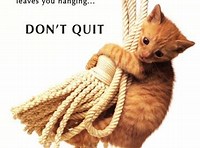It Has More to do With Business and Less to do With Construction
There’s something exciting about the thought of starting your own business. It seems like a great idea initially. The problem is that most people don’t realize what it takes to operate a successful construction company.

We’ve all seen construction companies get started and then go out of business.
According to the Small Business Administration…
60 percent of US construction companies fail within the first five years of operation.
These companies reportedly blamed several factors for their failure, including labor shortage, politics, insurance, taxes, natural disasters, and subcontractor incompetence. While these things may be a part of the problem, if we look a little deeper, we’ll see…
The real factors that brought about construction company failures are internal and within the owner’s control.
The reasons are more likely poor planning, inaccurate scheduling, hiring the wrong people, inability to innovate, poor management, and bad or no business system.

The good news is, that the next generation of construction businesses can learn from their forefathers’ mistakes and avoid failing for the same reasons.
Owning or managing a construction business is a hard thing to do. And to do so successfully is especially hard.
The solutions to problems that can put construction companies out of business may not be easy. It takes a lot of planning, production management, hard work, and discipline to keep the business running successfully. But at least…
Most issues faced in a construction business are controllable.
Finding out what challenges are likely ahead can help construction companies be prepared.
Here are some reasons construction companies fail –
Lack of funding and/or poor cash flow – One of the reasons construction companies fail is not enough funds or unwise use of funds.
The ultimate dream of any professional in the construction industry is to earn more by owning and running a business, rather than collecting a paycheck working for someone else. But keeping a business operating at a profit is never as simple as just doing construction work.
There are processes and systems that need to be in place for collecting from customers and paying the bills. Construction requires tools, vehicles, and equipment, and these aren’t cheap.
It’s critical to maintain positive cash flow, have a budget for bills, and money saved for emergencies.

Overlooking these things can quickly lead your company to failure.
Poor project performance – One bad project can lead to a construction company’s closure.
Project performance is more than the physical construction work. The internal business systems for proposals, change orders, project management, invoicing, etc. are often not thought off when thinking about construction projects.
Construction projects are about good results. This includes starting and completing projects on time and within budget. Meeting contract requirements and customer expectations.
Failure in any of these areas may mean the closing of your company.
Failure to plan – Just like good planning can lead to a successful construction project, the same is true for building a successful business.
In project planning, you define goals and processes according to the customer’s requirements. You are intentional and clear on where the project is going and how you’re going to get it there.
A good builder will do the same when it comes to their business.
Consistant clear communication with customers, production teams, and suppliers is one of the important pieces of a good business plan.
The likelihood of companies going out of business without a plan increases exponentially.

There are a lot of risks lurking on a construction site that can cause a project to go poorly. The best way to avoid these risks is through awareness, understanding, and preparation.
The same is true for your company. If you become aware that there’s a problem and understand it, you will be more likely to avoid it. Instruction and learning can lead to building your dream business.
The road to success in the construction industry may be long and rough, but it’s worth it.
Become more successful through improved processes, systems, and management; take it one step at a time, and soon enough, you can achieve your ultimate business dreams.
Let us know what your biggest construction business struggles have been in the comments below.













 shovel. What matters is that you start shoveling and don’t quit. Failure only exists for the person who quits.
shovel. What matters is that you start shoveling and don’t quit. Failure only exists for the person who quits.